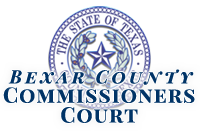
By Veronica Gallegos
Communications Specialist, Alamo Area Council of Governments
Depending on the day and the amount of ground-level ozone in the air, the great outdoors could in fact be causing harm to you and your loved ones. In observation of the Ozone Season and Au- gust, one of the months with the highest concentrations of ozone – the Alamo Area Council of Governments (AACOG) wants to make sure you and your family are prepared and protected.
The most common form of air pollution in the San An- tonio region is ground-level ozone, a major component of smog. This ozone is formed when intense sunlight mixes nitrogen oxides (NOx) – largely produced by vehicle exhausts – with volatile organic compounds (VOCs), which are found in gasoline fumes. While the primary emitters of NOx are our personal and commercial vehicles, VOCs are generated by a wide range of polluters, including coal plants, dry cleaners, and even the hair spray we use.
Among the number of negative effects to the environment, ground-level ozone can cause breathing problems and damage lung tissues to some of our most vulnerable communities.
Ozone is particularly harmful to those who already have breathing ailments, to those who are young and whose lungs are still developing, and to those who spend a lot of time outdoors. Individuals with respiratory issues can experience soreness in the throat, irritation, cough, tightness in their chest, and pain when breathing.
On the days that concentrations of ground-level ozone become high enough to impact our health, multiple entities, including AACOG, will issue out Ozone Action Day alerts. When this happens, everyone can help by making simple changes in their daily routines to reduce pollution: Limit your driving. Consider carpooling, using public transportation, or riding a bicycle.
Reduce engine idling. Avoid drive-thru lanes, or sitting in your car while in a parking lot. Try to bring your lunch to work.
Refuel after 6:00PM. During an Ozone Action Day, wait until the temperatures drop before you fuel up your vehicle. Upkeep maintenance on your vehicle. This includes ensuring your tires are properly inflated.
For more information on what ozone is, how it impacts public health, and to find more tips, you can visit aacog.com/376.
To subscribe for ozone action day alerts, please send an email to LHufstetler@ aacog.com or call (210) 362-5225.












